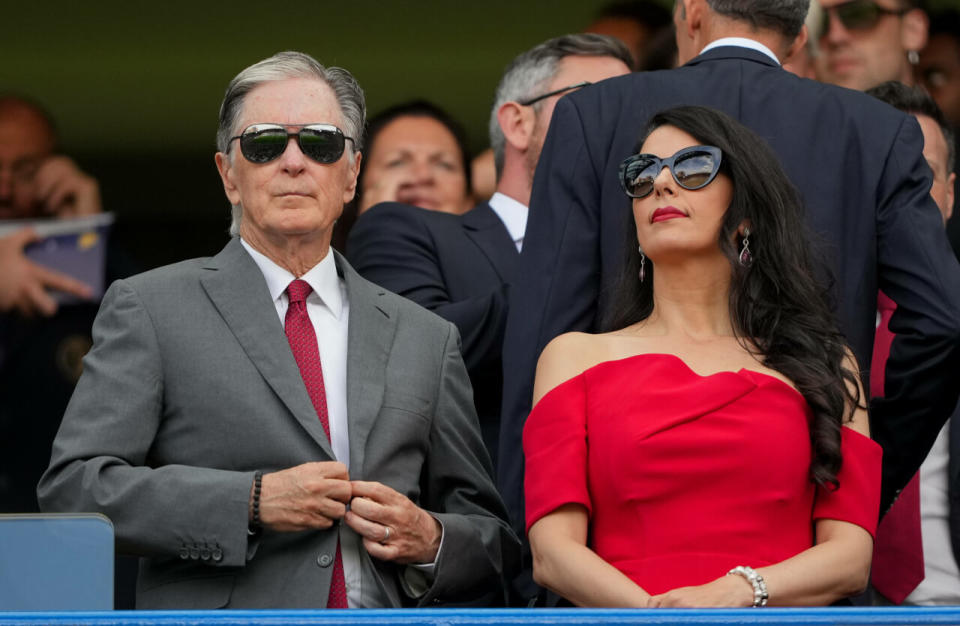Red Sox Fans Lament FSG’s Shift from Passion to Profits

John Henry and FSG Under Fire in New Netflix Documentary
The release of Netflix’s documentary The Comeback, chronicling the Boston Red Sox’s legendary 2004 World Series victory, has reignited intense criticism of John Henry and Fenway Sports Group (FSG). Henry, known for his cautious on-screen presence, appears in the documentary, but his appearance has done little to placate a disillusioned fanbase. Long-simmering frustrations over his management style and perceived prioritisation of profits over sporting success have emerged as a focal point for supporters of both Liverpool and the Red Sox.
Growing Frustrations Over FSG’s Approach
Over his 14-year tenure as Liverpool’s owner, John Henry has frequently encountered criticism. From controversial decisions like attempting to trademark Liverpool’s name and hiking ticket prices to flirtations with the widely maligned European Super League, Henry’s tenure has been peppered with public backlash. In each instance, Liverpool fans have managed to push FSG to back down, though many remain wary of the group’s motives.
The Liverpool fanbase’s frustration extends to FSG’s financial strategy, which emphasises self-sustainability. While some view this model as sensible, it has repeatedly left Liverpool trailing behind financially robust competitors in the transfer market. This sentiment has only intensified as FSG has limited investments while rivals continue to push boundaries with spending sprees. The resulting perception is that Henry’s commitment to the club may be more financially motivated than rooted in any genuine desire for competitive glory.

BoSoxInjection’s Take: A Deepening Disconnection
The critique toward Henry is not unique to Liverpool. BoSoxInjection, a popular Red Sox fan site, noted that Henry’s perceived disengagement from Boston’s on-field performance has led fans to question FSG’s commitment to the Red Sox as a competitive team. Katie Manganelli, a reviewer for BoSoxInjection, is unflinching in her critique: “He showed genuine care for the 2004 Red Sox in his interview portion of the series, but that passion has devolved into an obsession with Fenway Sports Group’s bottom line.”
The Boston Red Sox, once Henry’s focal point, appear to have drifted into a position of lesser priority for FSG, now seen by many as “an asset in FSG’s portfolio.” Manganelli contends that Henry’s shift from passionate owner to dispassionate investor has dulled the Red Sox’s edge, transforming them from a club in pursuit of championships to a tool for FSG’s profit maximisation.
Parallels Between Liverpool and the Red Sox
The stories of the Red Sox and Liverpool under FSG’s ownership have notable parallels. Both clubs were in dire need of revival when purchased by FSG. In each case, Henry’s investment facilitated a period of significant success: Liverpool claimed the Premier League title, while the Red Sox ended an 86-year World Series drought. However, with recent declines in investment, the same frustrations expressed by Red Sox supporters have echoed at Anfield, as Liverpool fans worry that cost-cutting measures may eventually hinder their club’s competitiveness.
What may unsettle Liverpool supporters further is the example set in Boston. In recent seasons, FSG’s frugality has taken a toll on the Red Sox’s on-field performance, with the club failing to compete at the highest level and losing marquee players over contractual disputes. The notion that Liverpool might follow suit, particularly as FSG focuses more on profitability, resonates deeply with those who fear similar trends will unfold in Merseyside.
A Shifting Priority Towards Liverpool?
Interestingly, some Red Sox fans believe FSG’s focus has now shifted toward Liverpool, especially as the group has revamped the club’s hierarchy in the post-Klopp era. But while that may sound like welcome news for Reds supporters, it brings little comfort when considered in light of FSG’s overarching financial strategies. Liverpool and the Red Sox fanbases share a sense of unease, both worried that the interests of their clubs may ultimately be compromised by FSG’s business-focused approach.
As The Comeback sheds light on FSG’s ownership, both Liverpool and Red Sox fans are left questioning whether John Henry’s legacy will be defined by trophies or financial gain. Their scepticism reflects a shared concern: that the ambitions of these historic clubs may increasingly play second fiddle to the priorities of an ownership group with global investment ambitions.

 Yahoo Sports
Yahoo Sports 
